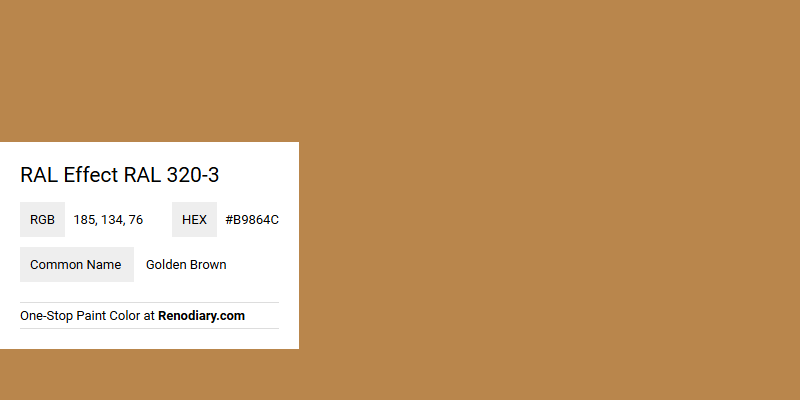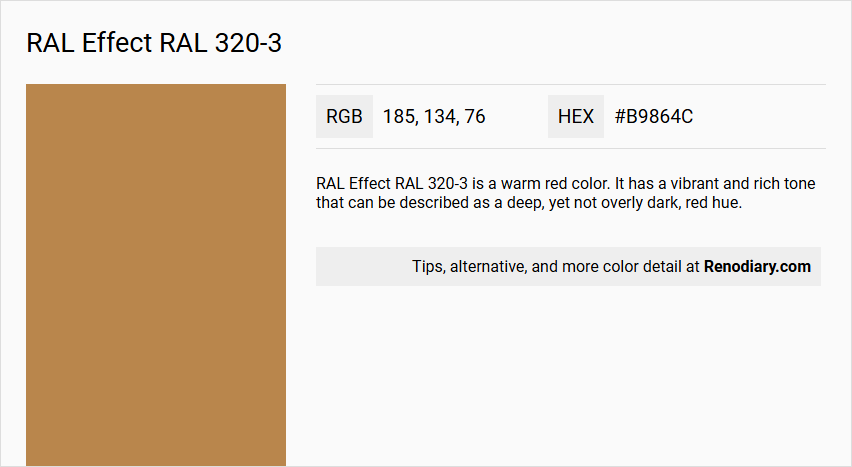
Golden Brown is a rich, warm hue that evokes a sense of elegance and sophistication, fitting seamlessly into rustic and contemporary design schemes. Its unique blend of undertones makes it versatile enough for both interior and exterior applications, providing a natural touch to any setting. Incorporating Golden Brown into your palette can effortlessly enhance the aesthetic appeal of furniture, wall accents, and decorative pieces, imbuing spaces with a timeless charm.
Color Description
RAL Effect RAL 320-3 is a warm red color. It has a vibrant and rich tone that can be described as a deep, yet not overly dark, red hue.
Undertones
The undertone of RAL 320-3 is accurately described as a red hue. This is determined by isolating the pure hue and eliminating any tints, tones, and shades.
Color Values
- HEX Value: #B9864C (or #B49053 in some sources)
- RGB Code: 185, 134, 76 (or 180, 144, 83 in some sources)
- CMYK: 13, 47, 80, 15 (based on one source)
- HSL: 38deg, 54%, 71% (based on one source)
Usage
RAL 320-3 can be used in various applications such as painting living room walls, kitchen cabinets, bedroom accent walls, bathrooms, or house exteriors. It is versatile and can add a warm, inviting atmosphere to different spaces.
Atmosphere
The color RAL 320-3 creates a warm and inviting atmosphere. It can add a sense of coziness and energy to a room, making it suitable for spaces where a vibrant and lively ambiance is desired.
RAL Effect RAL 320-3 Color Alternative
RAL Effect RAL 320-3 is a striking color that provides a unique visual appeal in various applications. Its color alternatives, Tikkurila Beeswax L396, Tikkurila Curry L395, and Sherwin Williams Tassel SW 6369, offer equally distinctive aesthetics while maintaining a compatibility with the original tone. Designers and architects can explore these options to achieve similar effects with a fresh perspective, ensuring that the desired impact of RAL Effect RAL 320-3 is preserved in their projects.
Bathroom
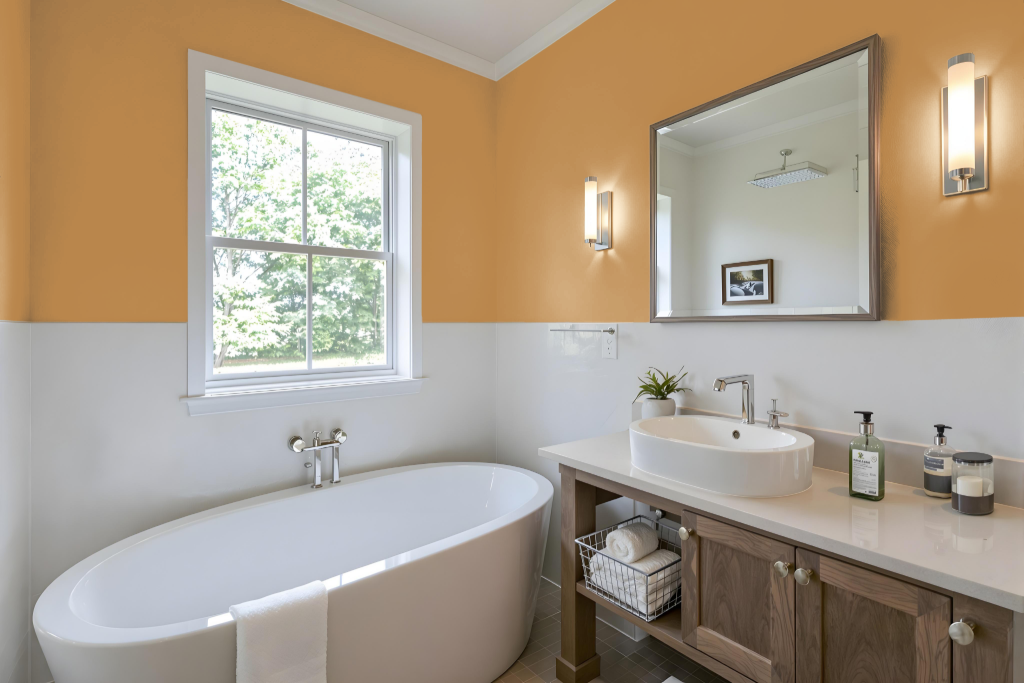
For a bathroom makeover, RAL Effect RAL 320-3 makes a vibrant and passionate choice, capable of adding warmth and a welcoming feel to the space. Its rich hue stands out beautifully as a backdrop on walls, trims, or as an accent that harmonizes with complementary fixtures and decor.
It's important to remember that the appearance of RAL Effect RAL 320-3 can vary with different lighting conditions. To ensure the color meets expectations, using a physical RAL color fan is recommended, as digital displays might not capture its true intensity and depth.
Bedroom
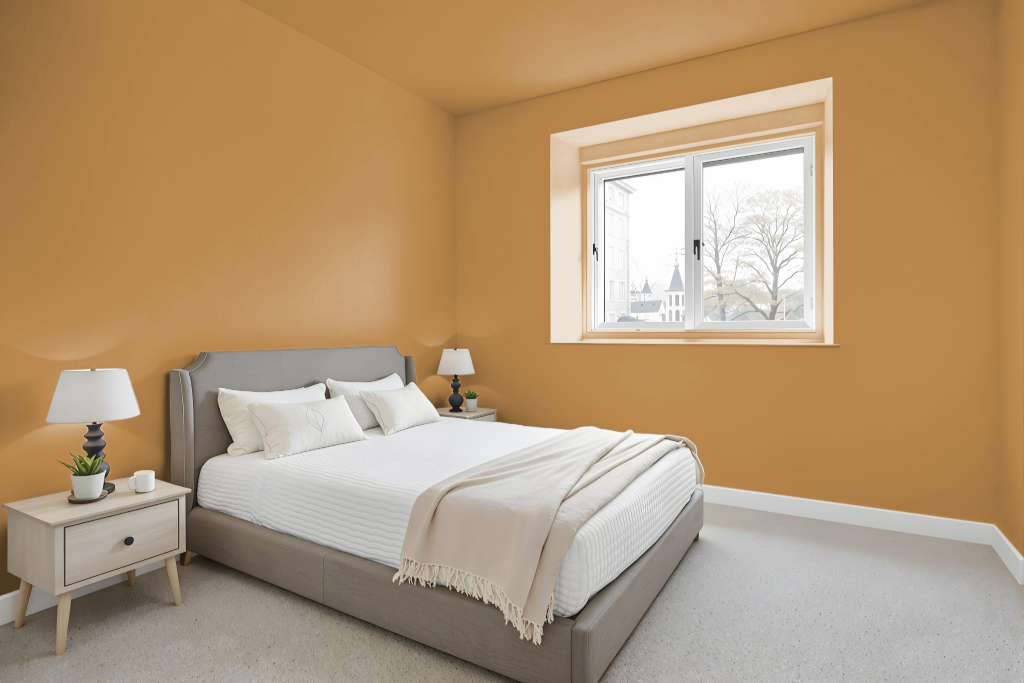
For a bedroom color scheme, RAL 320-3 infuses the space with warmth and an inviting atmosphere. It works beautifully on an accent wall or as a highlight in furniture and decor, pairing naturally with earthy shades such as pastel brown, tan, army green, light taupe, and golden brown to establish a cohesive and harmonious palette that radiates subtle elegance.
Additionally, this rich hue enhances a variety of design elements—from bedding and curtains to wall art—tying the room together with a refined, unified look. Incorporating textures and materials like wood or natural fibers further elevates the overall aesthetic, ensuring the space remains cozy and relaxing while exuding a distinctive charm.
Kitchen
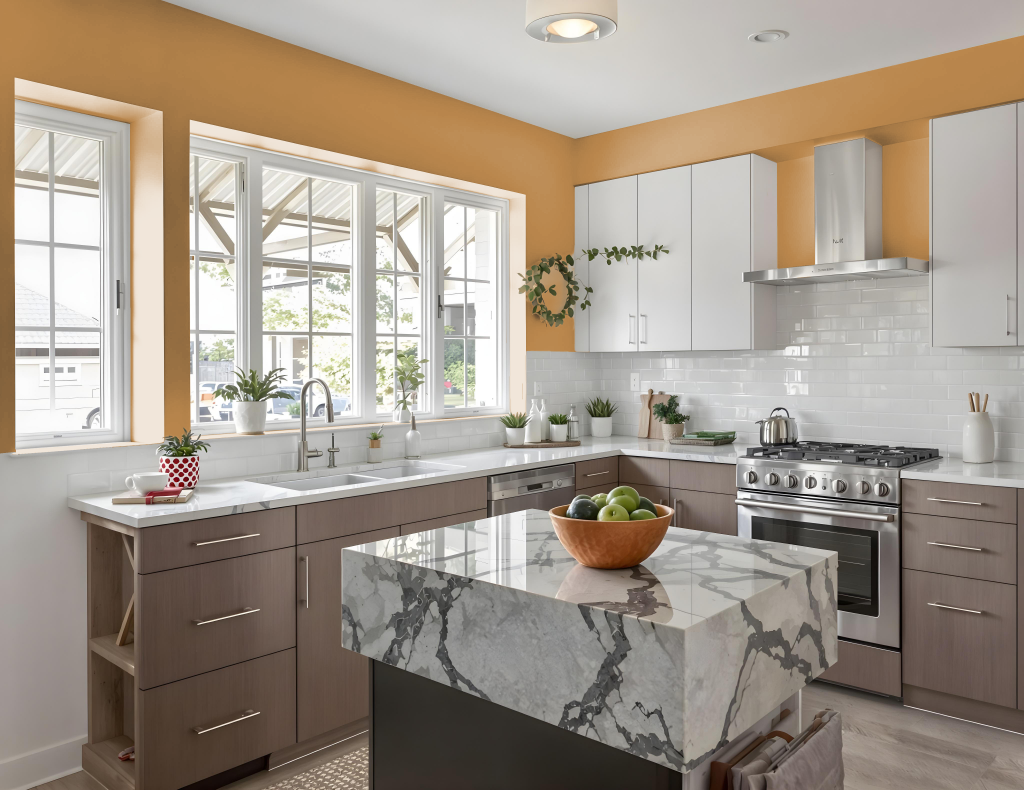
For a kitchen color scheme, RAL Effect RAL 320-3 brings a vibrant and inviting atmosphere, making it an excellent choice for cabinets, walls, or accent elements that contribute warmth and energy. Its lively appearance works harmoniously when balanced with neutral shades like light gray, beige, or white, creating a dynamic yet soothing environment.
Incorporating this color alongside natural materials such as wood or stone deepens the overall aesthetic appeal and adds a welcoming character, while accenting the design with metallic finishes like brass or copper elevates the space with a refined touch. This balanced approach results in a cohesive, attractive kitchen that is both energetic and sophisticated.
Living Room
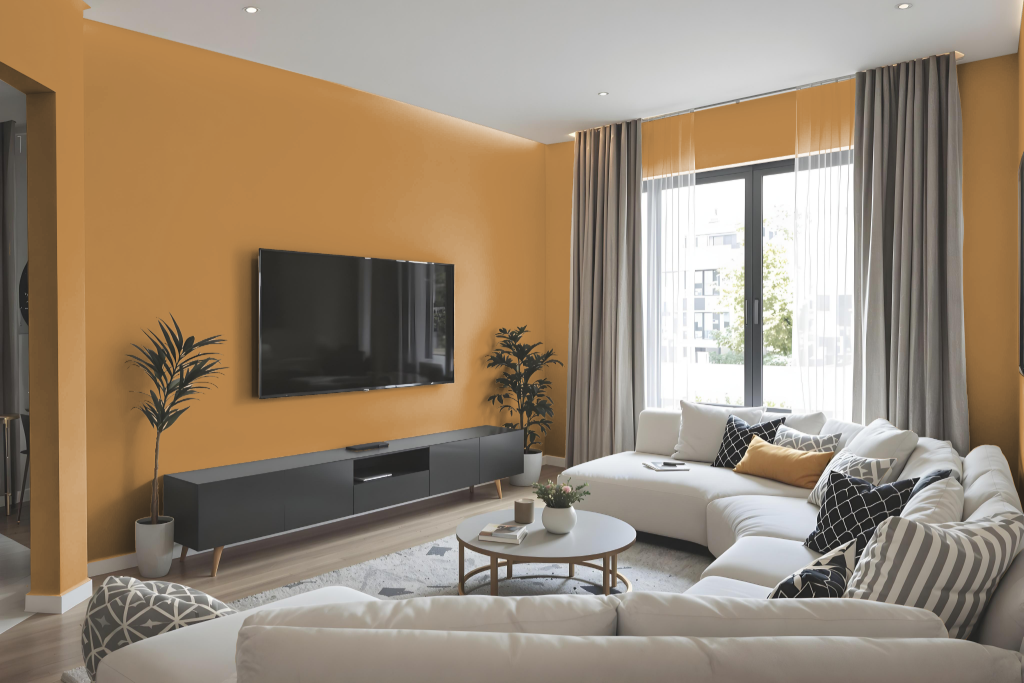
For living room design, RAL Effect RAL 320-3 infuses spaces with a dynamic energy that enhances the atmosphere. This energetic color is well-suited for dining rooms and accent walls, as well as for various interior elements like trims, kitchen cabinets, and bedroom accents, adding a touch of vibrancy to any room.
Beyond interior applications, the color works effectively on house exteriors, offering a bold and eye-catching statement for building façades. When implementing this hue, it is advisable to refer to a physical RAL color fan to ensure the most accurate representation of the intended shade.
Outdoor
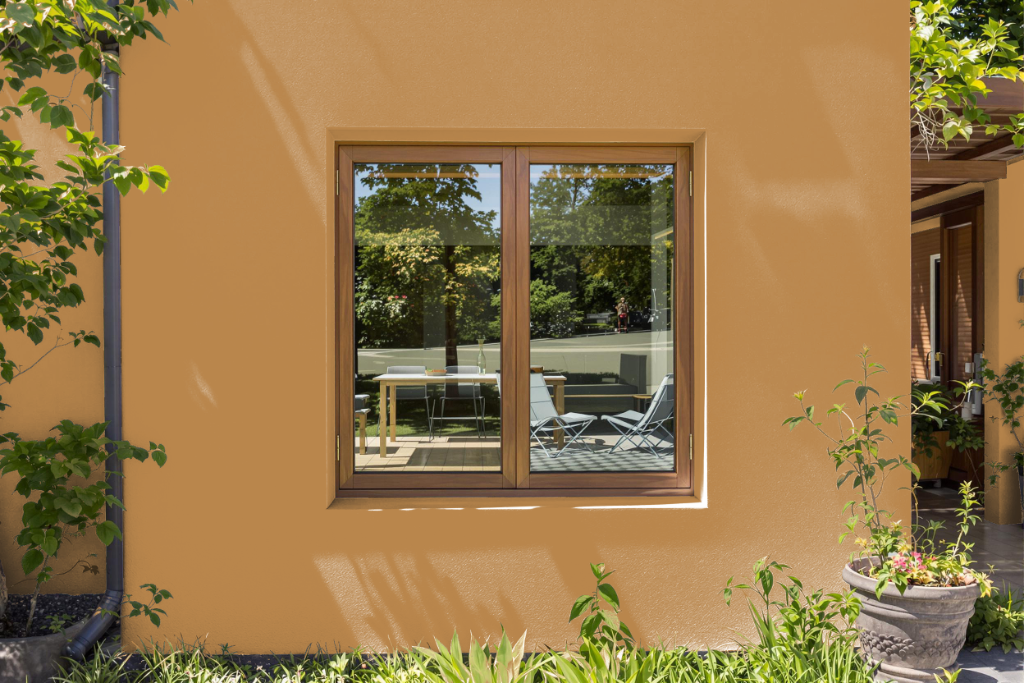
For home outdoor color, RAL Effect RAL 320-3 is an excellent option, offering a robust and distinctive profile for exterior applications. Its selection should be accompanied by careful verification using a physical RAL color fan, as digital representations may not fully capture its true appearance.
This hue falls within a specific category of the RAL Effect system and carries a light reflectance value that indicates a comparatively dark tone, potentially enhancing the overall curb appeal. Ensuring accuracy before painting is essential to achieve the desired effect and avoid mismatches.
